
Wagner PMC: current state, impact of events in Mali on war in Ukraine
The Tuareg's victory over Wagner mercenaries in Mali underscored the continued presence of this Russian private military company. Despite its reported disbanding after the rebellion and Yevgeny Prigozhin's death, Wagner remains active in Africa under Moscow's close watch
Contents
- Who are the Wagner fighters and why have they disappeared from the information space?
- Why is Russia interested in Wagner's activities in Africa and what happened in Mali?
- What do experts say about the current Wagner PMC?
Mercenaries are often called "soldiers of fortune." Even in ancient times, hired warriors participated in conflicts for payment or loot rather than for patriotism or ideology. While in popular movies mercenaries are often depicted as adventurers and somewhat romantic figures, in the real world, they are mostly individuals who lack moral or ethical obligations and thus perform any dirty work for the right price. Essentially, they are the same as killers, but legalized.
Espreso will tell you about the Wagner PMC, where it is currently fighting, and why Russia continues to use these mercenaries for its purposes.
Who are the Wagner fighters and why have they disappeared from the information space?
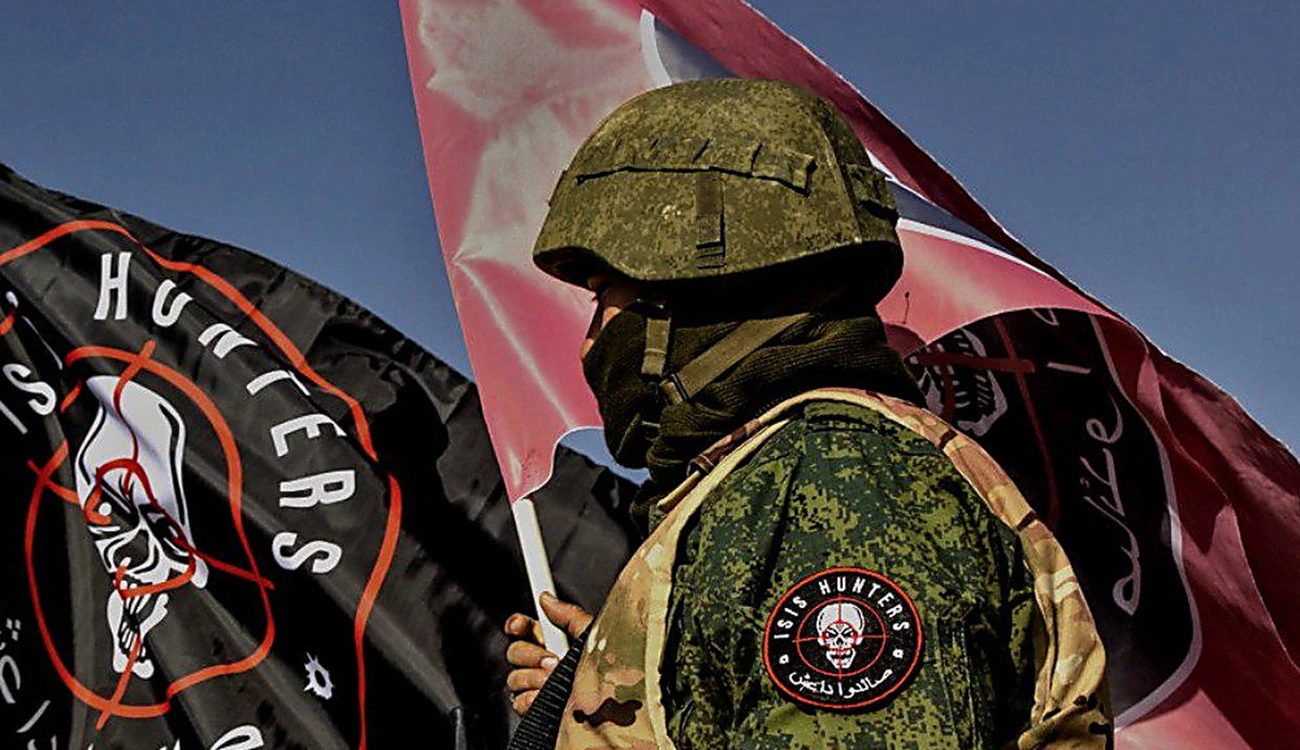
Photo: kanaldom.tv
In 2013, the Slavic Corps was formed in Russia, recruiting mercenaries for service. This structure became the foundation of the future Wagner PMC (nicknamed "the musicians"), which emerged in the context of the growing influence of private military companies worldwide and Russia's need for covert instruments of hybrid warfare.
The creation of the organization is linked to Dmitry Utkin, a former officer of the Russian GRU (Main Intelligence Directorate), who received the pseudonym "Wagner" due to his fascination with Nazi symbolism and the music of Richard Wagner. Later, Yevgeny Prigozhin became a key figure in the Wagner PMC thanks to his close ties with Vladimir Putin. As the organization's financier, he became its unofficial leader.
Wagner's first operations coincided with the preparation for the annexation of Crimea and the beginning of the war in eastern Ukraine. In early 2014, Wagner PMC became one of the key structures providing military support during the annexation of Crimea. Wagner fighters acted as part of the so-called "little green men" who, without insignia, captured strategic objects on the peninsula.
After the annexation of Crimea, Wagner PMC was deployed to eastern Ukraine, where an armed conflict began between Ukrainian military forces and pro-Russian separatists. The company actively participated in combat, supporting the separatists as instructors, advisors, and direct participants in the fighting.
The primary source of replenishment for Wagner fighters came from former military personnel, particularly veterans of special forces, airborne troops, the GRU, and other security structures. Additionally, contractors who wanted to earn money quickly signed up with the organization. When quantity was needed over quality, Wagner PMC recruited thousands of convicts, promising them amnesty in exchange for participation in combat.
Besides Ukraine, the "musicians" were involved in Syria to support Bashar al-Assad's regime. The PMC participated in combat operations against opposition forces and ISIS, providing security for oil fields. Wagner PMC was also involved in several operations in African countries, including Libya, Sudan, the Central African Republic, Mali, and Mozambique. In these countries, Wagner fighters provided military support to governments or groups loyal to Russian interests. In South America, the involvement of the Wagner private military company is mainly concentrated in Venezuela, where Russia supports Nicolás Maduro's regime. Their task is to ensure Maduro's security and protect important strategic objects such as military bases and oil fields.
It is important to emphasize that Wagner fighters are accused of war crimes, including murders, torture, rape, and robbery of civilians. Therefore, for most of the civilized world, Wagner fighters are officially recognized as a terrorist organization.
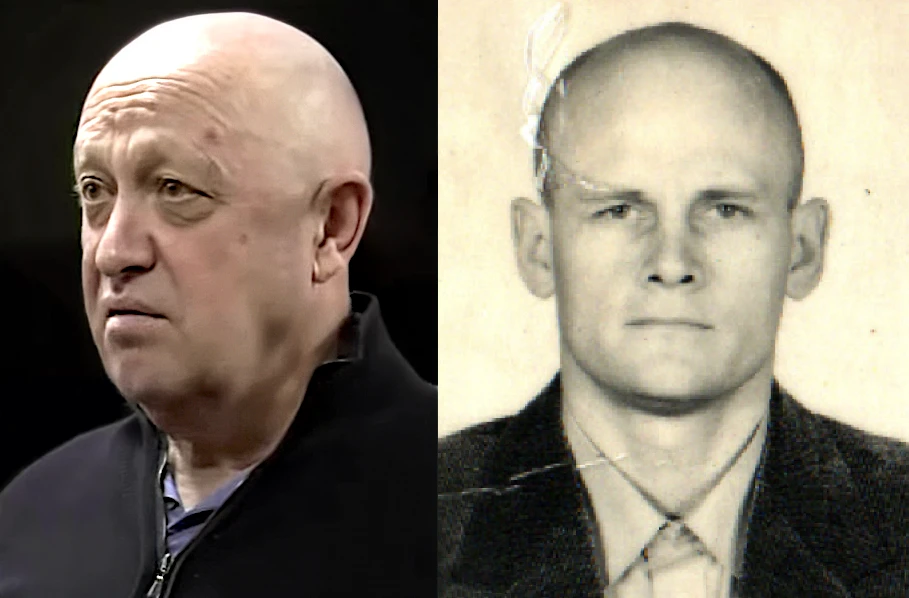
Prigozhin and Utkin. Photo: Wikipedia
A turning point in the history of the Wagner PMC was the full-scale war in Ukraine. Essentially, it was then that they experienced the greatest growth in their influence and a sharp decline.
With the start of Russia's full-scale invasion of Ukraine, the Wagner PMC played a key role in a number of military operations. Even before the invasion began, Wagner sent several hundred of its mercenaries from Africa to Ukraine. Their task was to eliminate the Ukrainian leadership, particularly President Volodymyr Zelenskyy. However, Ukrainian intelligence obtained information about these plans and prevented them from happening.
Subsequently, Wagner mercenaries actively participated in battles in eastern Ukraine, particularly in operations around Bakhmut, where they suffered huge losses. According to Politico, as of May 2023, about 22,000 Wagner mercenaries had been killed in Ukraine, and another 40,000 were wounded. According to Yevgeny Prigozhin, they were spending over $100 million per month to finance operations in Ukraine. Prigozhin increasingly accused the Russian Defense Ministry of incompetence, criticizing the lack of shells and the embezzlement of funds. Eventually, a criminal case was opened against him on charges of "armed rebellion." Without much hesitation, Yevgeny Prigozhin began this rebellion.
On June 24, 2023, Wagner mercenaries took control of several military facilities in Rostov-on-Don, and some units advanced from the Rostov region towards Moscow. Throughout the day, they encountered minimal resistance as they passed through the Voronezh, Lipetsk, and Tula regions. A counter-terrorism operation regime was declared in several regions. However, the next day, with the mediation of Belarusian President Alexander Lukashenko, Yevgeny Prigozhin reached an agreement with the Russian authorities to end the rebellion when he was 200 kilometers from Moscow. The criminal case against Prigozhin was closed, and he, along with part of the Wagner mercenaries, went to Belarus.
This marked the beginning of the inevitable downfall of the Wagner mercenaries, which ended spectacularly for Prigozhin and Utkin. On August 23, they died in a plane crash, allegedly orchestrated by the Russian authorities. According to the Wall Street Journal, their murder took place after two months of preparation and was approved by the then Secretary of the Russian National Security Council, Nikolai Patrushev.
After the death of the PMC leadership, part of the structure was subordinated to the Russian National Guard. In November 2023, it became known that the updated Wagner PMC was headed by Yevgeny Prigozhin's 25-year-old son, Pavel. However, this did not help the organization maintain its former influence. Moreover, advertisements for Wagner and their "exploits" began to disappear from the Russian media space, and the graves of the mercenaries were leveled with the ground. Their autonomy was also leveled, and their forces scattered.
Why is Russia interested in Wagner's activities in Africa and what happened in Mali?
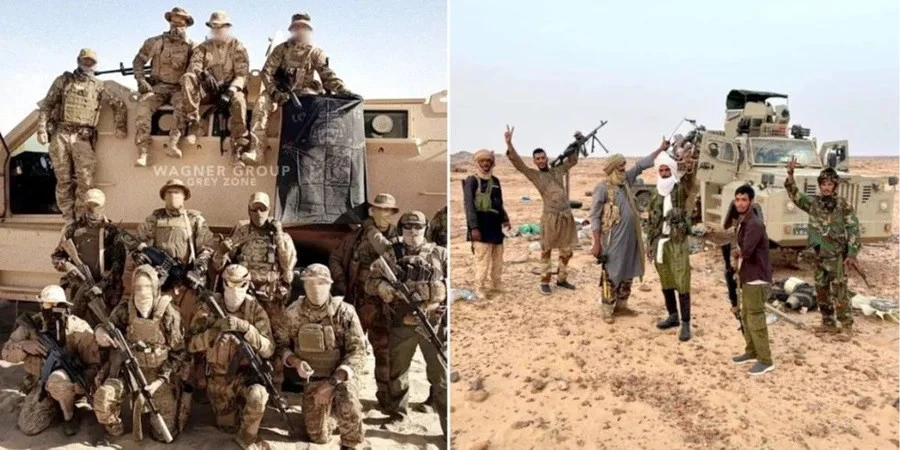
Photo: NV
After Wagner mercenaries were removed from the war in Ukraine, their activities were mainly focused abroad. However, some of them still remain in Belarus, numbering a few hundred individuals, where they continue to train mercenaries for the war in Ukraine, particularly forming units for sabotage operations on Ukrainian territory.
The largest number of Wagner mercenaries is in the African Corps, which is actively managed from Moscow. According to the New York Times, about half of the recruits in the African Corps are Wagner veterans. They operate in several African countries, such as Mali, the Central African Republic (CAR), Sudan, Libya, and others.
The African Corps acts as an umbrella for Russia's paramilitary activities on the continent—not only for Wagner but also for other private military companies. For example, mercenaries stationed in Burkina Faso belong to a new structure called Bear, according to The New York Times.
Regarding Mali, the current war there has been ongoing since 2012, when jihadist groups united in the National Movement for the Liberation of Azawad, particularly the Tuareg desert people, launched an armed uprising against the government. They sought autonomy for the northern region of Azawad and thus allied with various Islamist groups, including al-Qaeda. Eventually, they declared independence, but in 2013 they agreed to a peace deal due to French army intervention, gaining broader autonomy, though this did not stop the war, which continued chaotically for years due to numerous clashes between small armed groups.
In 2021, a military coup in Mali further complicated the situation, bringing a military junta to power. When the French announced in the summer of 2021 that they were ending their mission in Mali, the new government turned to Russia, which gave the green light to the Wagner PMC. At that time, it was reported that the Malian authorities were willing to pay Wagner mercenaries over $9 million per month to deploy about 1,000 fighters in the country, train local troops, and protect high-ranking officials.
The Guardian reported that the activities of Wagner mercenaries in the country were accompanied by numerous accusations of human rights violations and brutal treatment of the civilian population, especially in the central regions. In April 2022, they, along with the Malian army, were accused of killing 300 civilians.
According to Professor Antonio Giustozzi from the Royal United Services Institute, who studies international terrorism and conflict, the peak of Wagner's activity in Mali was in 2023, when there were about 2,000 of them in the country. However, by 2024, their number had decreased again to 1,000.
"There are strong perceptions that Wagner has contributed relatively little to Mali’s struggle against jihadist groups and may even have presided over a deterioration in the situation," says expert Antonio Giustozzi, adding that this number of soldiers is not enough to change the situation in the country.
So, a logical question arises: why do the Russians need Mali? Could it be for the few million dollars they earn there? In reality, it's about much bigger money. Mali has significant gold deposits; for example, in 2020, 71 tons of this precious resource were mined there. This amounts to not millions, but billions of dollars! That's why the Russians want to maintain their influence there and are fighting not for the current government but for the opportunities to mine gold in the country.
According to the New York Times journalists, Russia's overall goal is geopolitical influence and access to Africa's natural resources. However, there are many competitors: not only China, the USA, and European countries but also Turkey and the United Arab Emirates, among others.
"Wagner operatives have exploited gold mines in the Central African Republic and Sudan. Russian mining companies export diamonds from Angola and Zimbabwe, and bauxite from Guinea, among others Russia has signed military cooperation agreements with 43 African countries since 2015, according to the European Parliament. Russia was also the largest supplier of weapons to Africa between 2018 and 2022," note the American journalists about Russia's influence in Africa.
At the end of July 2024, social media was flooded with photos and videos of dozens of dead "musicians" killed by Tuaregs who ambushed the Russians and Malian government forces. The Tuaregs reported that in three days of fighting, they managed to eliminate 84 Russian Wagner mercenaries and 47 Malian soldiers. Additionally, there are over 30 wounded and 7 captured as a result of the battles. During the fighting, the administrator of the Russian propaganda channel Grey Zone, which spread fakes and disinformation about Ukraine, was also killed.
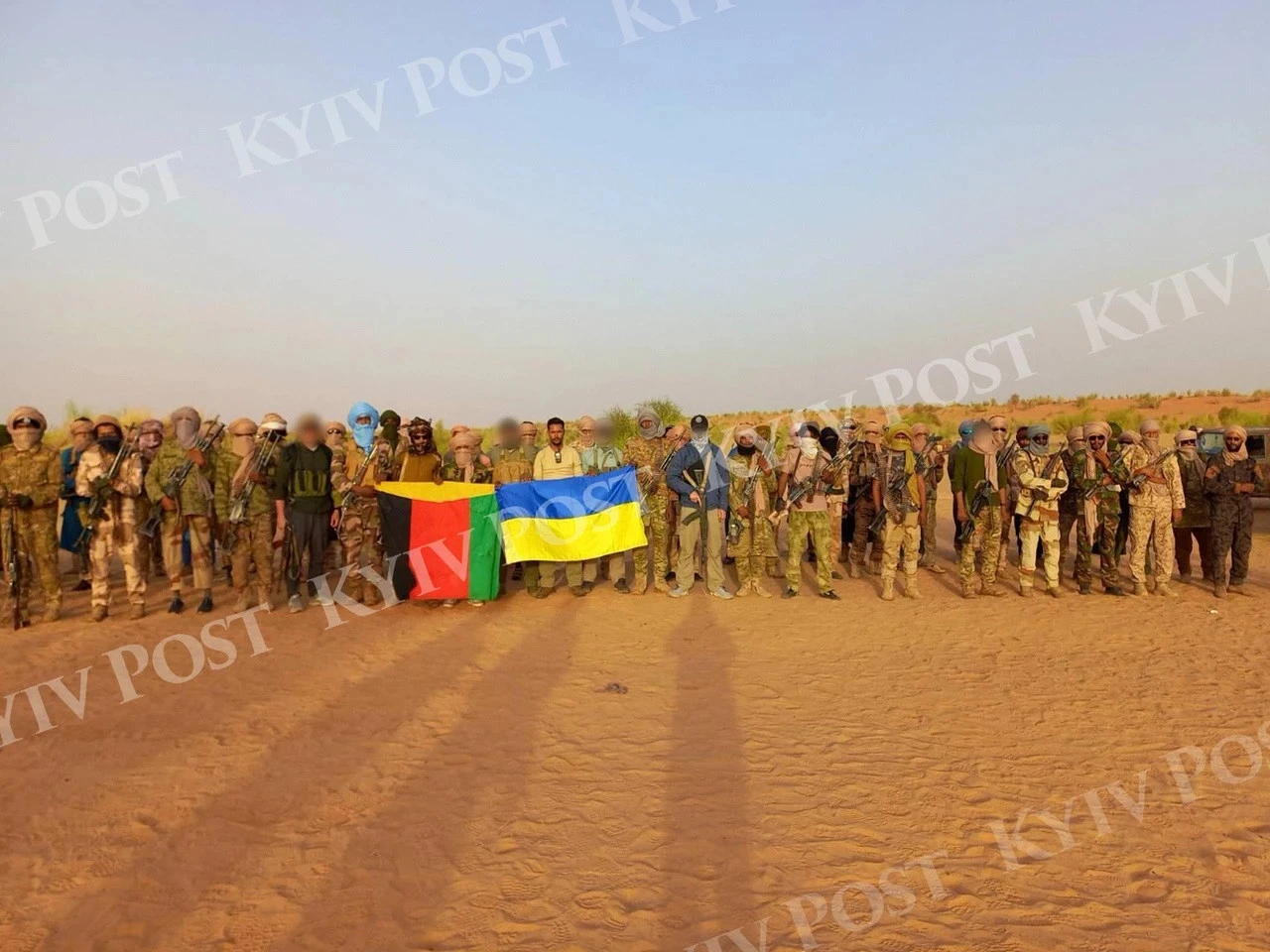
Photo: kyivpost
After the Tuareg rebel attack on Wagner mercenaries, the Kyiv Post published photos of them posing with the Ukrainian flag. Russian propaganda quickly began spreading news about the alleged involvement of Ukrainian special services, including claims of military training for the rebels, supplying them with weapons, and providing intelligence. Ukraine traditionally neither confirmed nor denied these reports.
During the United News telethon broadcast, Andriy Yusov, a representative of Ukraine's Main Intelligence Directorate, emphasized that similar incidents with Russian mercenaries are occurring in various places — recently in Sudan, then Mali, Syria, and "there are a few more events that have not yet been publicized in the media."
"It's about the fact that the monopoly in the field of bandit and pirate activities of the so-called Russian PMCs in the world and in Africa is definitely coming to an end. Forces of opposition are emerging that can put these criminals in their place," Yusov said.
He noted that these events have both image and military consequences. Specifically, after the destruction of Wagner mercenaries in Mali, it is known that additional units of Russian mercenaries are being transferred there from other parts of Africa.
Commenting on the information that the rebels allegedly want to hand over captured Wagner mercenaries to Ukraine, the intelligence representative stated that "regarding this sensitive issue, we still need to wait."
The intelligence agency also assured that similar operations will continue, and there is information that currently "professional patriotic people" are preparing the next measures to reduce the capabilities of the aggressor state both in Africa and in other parts of the world.
What do experts say about the current Wagner PMC?
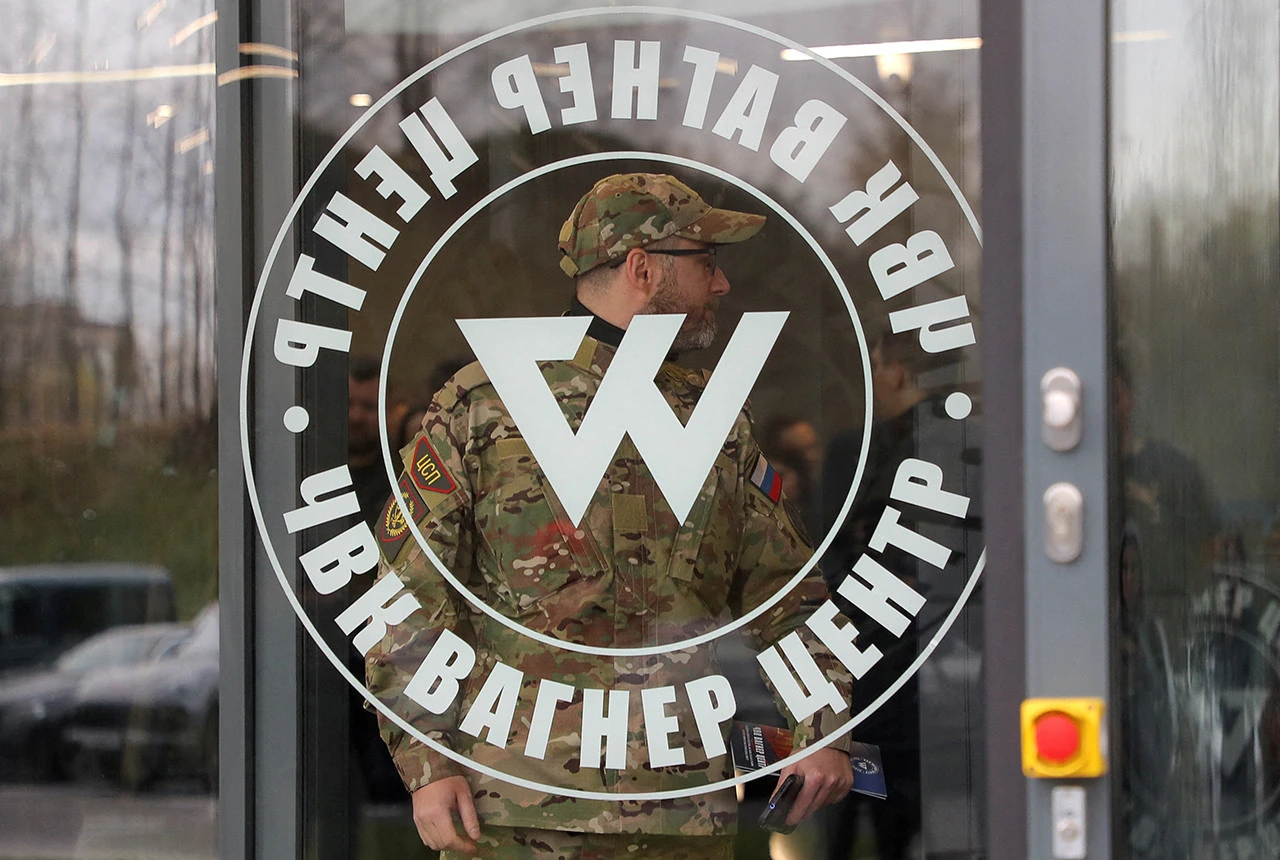
Photo: Reuters
Defense Express military expert Valerii Riabykh told Espreso that Wagner fighters continue to serve as a hybrid tool of the Kremlin to extend its influence in various parts of the world. Mercenaries from this private military company continue to carry out tasks wherever the Kremlin sends them.
"Tuaregs, rebels from Mali who are fighting to create their own state, have contacted Ukrainians, saying they have about fifteen of these Wagner fighters and are willing to hand them over to Ukraine to face punishment for their atrocities, which were committed not only in Ukraine but also in several African countries. I think this is a fitting end for mercenaries given their inhumane practices, making dirty money by killing people around the world," Valerii Riabykh said.
In contrast, Viktor Yahun, former Deputy Head of Ukraine's Security Service, told Espreso that currently, there is no longer a distinct concept of Wagner fighters, and that they are now akin to a brotherhood controlled by the Kremlin.
"Roughly speaking, they are now like former 'Afghan' fighters. Everything that could be taken over business-wise has been taken over by Prigozhin's son, but not with the same control over the organization that his father had," the expert noted.
Viktor Yahun says the main strongholds of this group are indeed concentrated in Belarus and Africa.
"There are still some who remain in the army, but very few. The Russian army tries to keep them separate. Roughly speaking, no more than three together. Why? Because they are very afraid that the rebellious 'Wagner spirit' might spread to a unit, they might start influencing it, and eventually, that unit could become a center of free-thinking," Viktor Yahun added, noting that their activities in Africa are under the strict control of the Russian main intelligence directorate.
Regarding the statements by the head of Ukraine's Main Intelligence Directorate, Kyrylo Budanov, about hunting down Russian criminals worldwide, Viktor Yahun says it's important to distinguish between targeting and eliminating individual war criminals and efforts by Ukrainians to undermine trust in Russian forces globally.
"It's one thing to hunt down a single criminal, and another to try to undermine Russia's interests in a region to portray them in a bad light. What is this African Corps busy with? Providing services. If these services are of poor quality, if they can't do their job, who will contract with them, give them money, and let them onto their territory? Ukraine's task is to do everything possible to push them out, to change the perception that they are specialists who are needed by someone," the expert emphasized.
Serhiy Kuzan, director of the Ukrainian Center for Security and Cooperation, explained that for Moscow, African countries where Wagner is present are important zones of interest for obtaining resources (gold, diamonds, gas, oil) that subsequently finance Russia's war in Ukraine, as reported by the Guardian. The expert added that operations against Wagner help reduce the group's military potential and retaliate for war crimes committed in Ukraine.
Summarizing all these expert opinions, it can be concluded that the failures of Wagner's military operations and the African Corps can directly undermine African leaders' trust in Russia. This reduces their dependency and friendly attitude towards Putin, thereby closing another window to resources that Russia converts into instruments for waging war in Ukraine.
- News













































